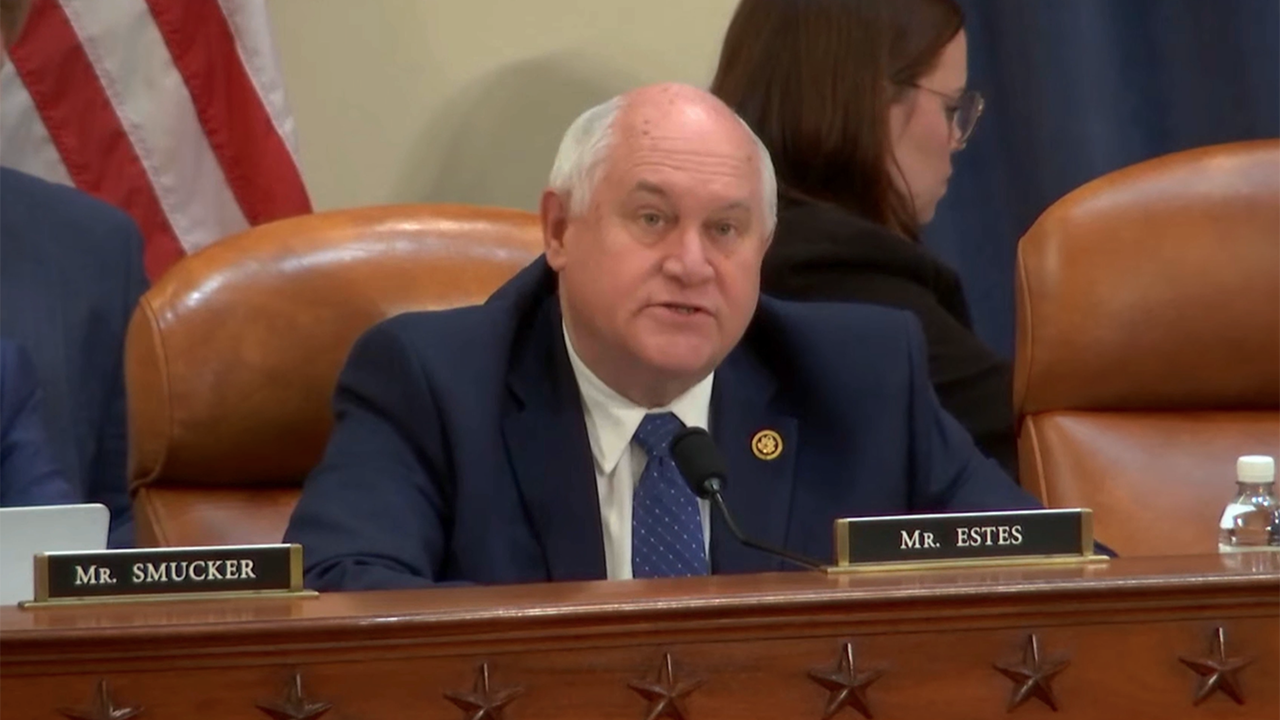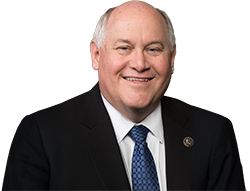WASHINGTON – Today, the House Ways and Means Committee passed Rep. Estes' Ensuring Seniors' Access to Quality Care Act 25 to 18. The bipartisan legislation, introduced with Rep. Gerry Connolly (D-Virginia), allows nursing homes to continue operating their in-house CNA training program even if they incur fines above a certain amount, so long as the fines are issued for reasons unrelated to direct resident care. Rep. Estes spoke in support of his legislation before the vote.
"This common sense, bipartisan bill accounts for the current workforce challenges nursing homes face without compromising on a commitment to quality care for residents," said Rep. Estes. "This bill ensures nursing homes continue to meet high standards without losing the staffing levels needed to provide high-quality care."
Speaking about the recently finalized staffing rule from President Biden, Rep. Estes said, "This markup couldn’t come at a better time now that the disastrous Nursing Home Minimum Staffing Rule has been finalized. While I disagree with this rule, my bill will help nursing homes comply by allowing them to train the necessary staff to meet the rule’s requirements."
Ways and Means Chairman Jason Smith (R-Missouri) said of the bill, "Nursing homes in America are experiencing a staffing crisis. President Biden's new nursing home mandate will not only exacerbate the existing nationwide nurse shortage but will also put seniors' care at risk. Rep. Estes' bill, the Ensuring Seniors' Access to Quality Care Act, will ensure that qualified nursing homes can continue to operate Certified Nursing Aide training programs, grow the health care workforce, and continue serving seniors in need of care."
Background
Today, 99% of nursing homes currently have job openings, and 46% of nursing homes have had to limit new patient admissions due to the lack of staff. Nearly 20% of nursing homes have closed part of their facility due to a lack of staff. The Biden administration’s recently finalized nursing home staffing mandate will worsen workforce shortages across the country, as it requires nursing homes nationwide already struggling to find staff to hire more than 100,000 additional nurses and nurse aides. One estimate suggests nearly 300,000 residents will lose access to care – more than one-fourth of all residents – as nursing homes slow admissions to comply with the mandate. Rep. Estes wrote about this rule and his CNA bill in a November 2023 op-ed in The Hill.
Under current law, Medicare prevents nursing homes from operating a Certified Nurse Aide (CNA) training program for two years if the facility is fined a certain amount. In making the decision to prohibit the training program, Medicare does not account for the seriousness of the underlying deficiency or activity the fine was related to. For example, a nursing home could be fined for a deficiency unrelated to direct resident care, like having expired crackers in a food pantry, yet would still be prohibited from operating a CNA training program for two years. While current law contains a waiver, it is seldom used and has proven inadequate. Rep. Estes' legislation addresses this issue.

Watch video of Rep. Estes' remarks here.
Full Remarks
I appreciate the committee marking up my Ensuring Seniors’ Access to Quality Care Act today. This common sense, bipartisan bill accounts for the current workforce challenges nursing homes face without compromising on a commitment to quality care for residents – a goal I’m sure everyone on this dais shares.
This bill ensures nursing homes continue to meet high standards without losing the staffing levels needed to provide that high-quality care. The Ensuring Seniors’ Access to Quality Care Act prevents an in-house CNA education program from facing suspension due to non-care-related clerical violations. That’s a common sense solution to help keep CNA education programs operational and assist nursing homes across the country with staffing.
I’ve heard from numerous constituents and nursing home leaders about how much good this bill will do, one going so far as to say, “Nearly 50% of CNAs on our staff were trained in-house; if this training isn't available we do not have the capability to care for vulnerable Kansans.”
And this markup couldn’t come at a better time now that the disastrous Nursing Home Minimum Staffing Rule has been finalized. While I disagree with this rule, my bill will help nursing homes comply by allowing them to train the necessary staff to meet the rule’s requirements. I think my colleagues will agree with this policy aimed to help boost the nursing workforce.
As nearly every industry across the country contends with worker shortages, and the cost of school in this economy remains prohibitive for many, every effort should be made to keep in-house CNA programs running, which are often at no cost to candidates. With the appropriate oversight, CNA programs are a crucial staff pipeline to ensure nursing homes are able to provide proper care to their residents.
Thank you for marking up this bill today and I hope you all join me in supporting this important legislation that will improve the lives of America’s seniors.








